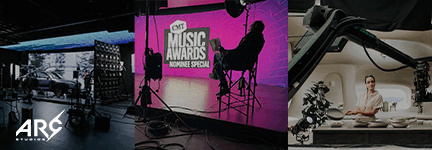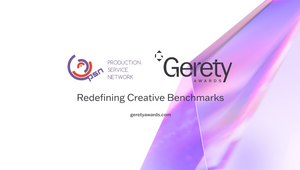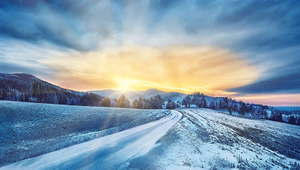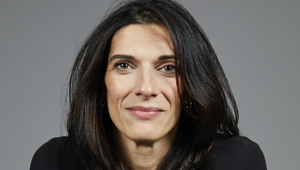
Rob Newman: “The Pandemic Has Changed What it Means to Be a Producer”
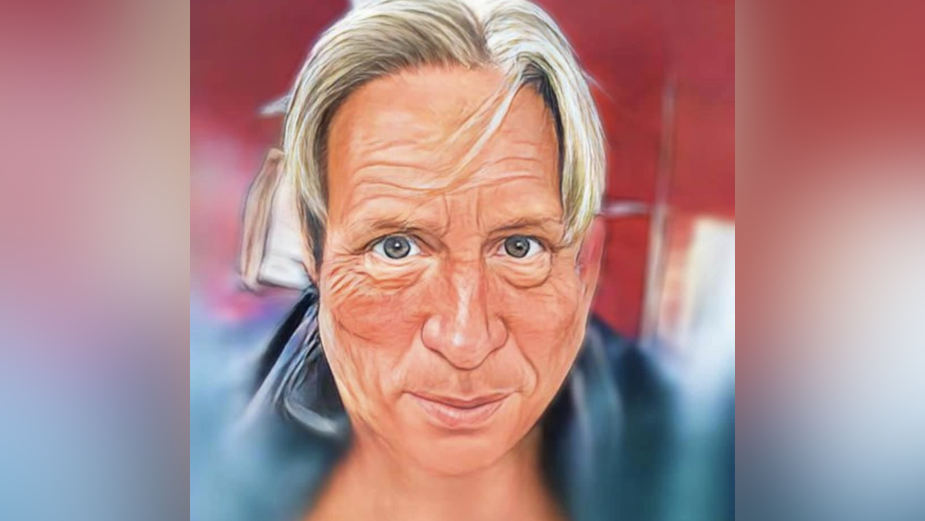
Production Service Network, the one-stop-shop for worldwide film & photo shoot support, is proud to support creativity across the planet. As part of that mission, we’ve teamed up with LBB to celebrate the past, present and future of the big creative idea. Over the course of this upcoming interview series, we’ll speak to producers who’ve breathed life into creativity and, quite simply, been the driving force that made incredible things happen.
Today, we speak to the legendary producer Rob Newman. From Hollywood to Adland, Rob has put his hand to some of the most iconic and enduring creative work of the industry’s recent history. From his collaborations with talent such as Guillermo Del Toro, Rihanna and Aretha Franklin and brands like Disney and Samsung, it’s safe to say that Rob knows his stuff when it comes to the production industry. Here, he reflects on the lessons the pandemic has taught us all, why a local service company can ‘make or break’ a project, and how home cooking and Tiger King helped inspire him to write more…
LBB> Let’s start right at the beginning. I understand you come from something of a ‘showbiz family’, so was it always pre-ordained that you’d pursue a career in the industry?
Rob> Yeah, most everyone in my family was in 'showbiz' on some level - from music to production to performing - and working in the industry always seemed to be more fun than most jobs. How many jobs are there where you get to see the fruits of your labour on-screen, and travel all over the planet making it happen?!
LBB> Having said that, it seems that music and film scores represented a large part of your family’s work in the industry. That work includes 11 Oscars and nearly 100 academy award nominations for Randy Newman, Alfred Newman, and Thomas Newman amongst others. So how come you took the path of a producer specifically?
Rob> I grew up quite literally running around in the executive offices at film studios like Paramount where my dad worked for many years. The production side always seemed the most fun to me - out and about on locations as opposed to being locked in a room with a piano.
In fact, I hated the piano growing up. For years my composing cousins and I shared the same piano teacher, 'Mrs. Waxman,' and she had a hand-made honour roll for each student. My cousins’ honour rolls glistened with huge gold stars, whereas my roll just had red or blue ‘loser stars’. It kinda felt like the stars were saying "thanks for trying, but you're not very good at this." So composing was never meant to be - but production was.
LBB> You’re also someone who specialises in ambitious, cross-border productions. We've seen remote filming come to the fore since the pandemic, where those international shoots have become more difficult. But do you think the industry has lost some of its on-set magic in that process?
Rob> I do love traveling and cross border productions, as all my friends and colleagues know. And I certainly can't say I prefer remote-producing from the ‘comfort’ of my living room.
There is a magic in the air when you’re on-set, and you see things and catch things in person that you might miss on a remote shoot. However, there can be exceptions! Sometimes in preparing remote jobs you have to be more focused than you might otherwise be as you're not on-set or location catching things that are happening off-camera. So that extra effort in preparation is almost exclusively a good thing.
LBB> Where cross border shoots have gone ahead over this past couple of years, how much of a logistical challenge has it been?
Rob> Soon after Covid struck and shut down most everything in March of 2020, we did a package of nine completely different commercials for P&G that we shot in Prague with Mathew Cullen at Mirada directing. We built nine sets, had a cast of over 20 and a crew of over 70 and worked remotely. At the time, most remote commercial jobs consisted of rolling a camera into someone's house and shooting them or their family. Which was great news for DPs with photogenic families, I suppose!
But as far as we knew, our nine-commercial P&G package was the biggest round of commercials shooting anywhere in the world at the time. We bit off a lot and, to our delight, pulled it off.
What was great about what P&G let us do is that we had a prelight day AND a rehearsal day. The rehearsal day allowed us to share with the agency and client how everything was going to look, be art directed, and blocked so we could roll more quickly into the nine commercials we had to shoot. In recent remote shoots that rehearsal blocking day hasn't been happening as often, but I do believe it makes for a better commercial and does help add 'on-set magic' to the commercials, as you called it, especially with remote filming. And for the client, if there are specific branding needs in the commercial it helps ensure they are sorted out ahead of time versus on the day itself.
LBB> Somewhat incidentally, a recent ad you worked on with Mastercard and American Airlines (shot in Mallorca with Palma Pictures, PSN’s Spain Partner) humorously touched upon how we've adapted to make the best of the lockdown situation. Do you think we can still retain the magic of cross-border collaborations whilst working remotely, or will it always be second-best to the real thing?
Rob> I think it will always generally be second best to the real thing - but not always. I think it depends on the director and very importantly the quality level of the local service company.
Broadly speaking, your production service company - and their EP - together with your local line producer make all the difference. That can make or break any job, but certainly a remote job. For instance, often time the local production designer, and then later the DP, becomes the eyes of the director so you really need someone you can rely on. I’ve had so many wonderful collaborations with production service companies, but I’ve also had a few problematic ones with service companies I inherited when I started a job. I’m often consulted as to which companies I prefer in what territories, and I just wish that, when possible, line producers were consulted more often about their preferred service companies. After all, they’re the ones with the first hand experience of dealing with them!
On another note, one positive thing which I have seen come about from the pandemic is remote casting. Beforehand, almost everyone came into the studio for casting. But now with remote casting, the talent does it at home and sometimes they enlist their spouse (or kid or pet) into making a better casting tape - or doing a few takes until they get it right and allowing themselves to submit their best performance. On a number of occasions you see something come up in this kind of casting that becomes incorporated in the commercial. I know almost all my directors prefer this remote casting for certain jobs, and even for the final call back with rare exceptions. And in the remote call backs I think that the agencies are more focused as they're all two feet away from their computers looking at their computer screen, not in a large call back room where often they're on their computer focused on multiple projects, or Instagram or writing down their lunch orders…
LBB> ‘The pandemic has changed what it means to be a producer’. Do you agree with that?
Rob> I do, yes. Two years ago I didn't spend at least 20% of my day dealing with Covid protocols, or the logistics of working remotely. That's definitely changed my work load and made for some longer days. On a typical remote job in prep I might start at my computer in the living room at 7AM and sometimes not finish until 9 or 10PM, depending on where the agency is based and where we’re shooting. And in some of the jobs where the agency or client isn't on location, you have to be their ears and eyes a bit more and help think for them in a partnership way, even more than before.
LBB> And do you think these changes will only last as long as the pandemic, or are they more permanent?
Rob> I think many of the casting changes will be permanent, and I think fewer agencies and clients will travel out in the future. In recent times agencies have all been overworked, and remote Zoom and Qtake viewing will help in that they keep agency folks and clients closer to their homes.
But that's not necessarily a win for production. We welcome their input and not everything gets caught remotely in the same way it might if the entire team was present. And when on a location job, it's great to have client and agency together in a hotel, where a lot might get discussed over food or drinks each night in the bar or restaurant.
On the job we just finished in Toronto with 22 spots (the most I've ever done in one package), the agency initially was not going to send anyone. But in the end they sent one of their creative directors and having him there was a godsend. Agencies live and breathe the product for the client - and know their needs best - so we were so happy that the plan changed and we got at least one creative director there.
LBB> I understand that you also live across borders with a home in both the US and Thailand. Have you been able to get out to Thailand much over the last couple of years, and how have you been keeping yourself motivated and inspired throughout the challenges of the Covid era?
Rob> Yes, I have a home in Thailand and we love shooting there and the production value you get. But I was locked out of Thailand as of March 2020, and have only recently returned again for the first time.
As far as how I've kept myself inspired - like everyone else, I spent the first two months of lockdown at home cooking and watching Tiger King. But in the meantime I was able to reorganise much of my life, and started writing more and working on some feature projects.
Travel has always been my hobby and passion, so it was difficult not being able to easily go anywhere to shoot. But recently I've been shooting in Mexico, Canada, and the Czech Republic, and come next year those frequent flier miles should start pouring in again with more foreign jobs!
LBB> On a final note, are there any locations which you’re particularly looking forward to returning to?
Rob> Oh, so many! I always love shooting in South Africa, for starters. And Thailand, of course, is a wonderful place to make films. We're always telling agencies who think they can't afford something to consider Thailand.
We also do secondary casting in Australia, and Australia is now letting just their citizens travel in and out without the 14 day quarantine (so our Australia-to-Thailand shooting program is doable again).
Vancouver is always great to shoot in, and what a beautiful city to be in! And I hope we do something soon again in Buenos Aires - but we've recently found ourselves shooting more in Uruguay.
Lastly, I want to give an honourable mention to Prague, which is just a great shooting city. During the Spring and Summer you can sit on the outdoor patio at the Mandarin Oriental Hotel surrounded by tables and tables of production teams from other companies, and you run into so many old friends and colleagues.






